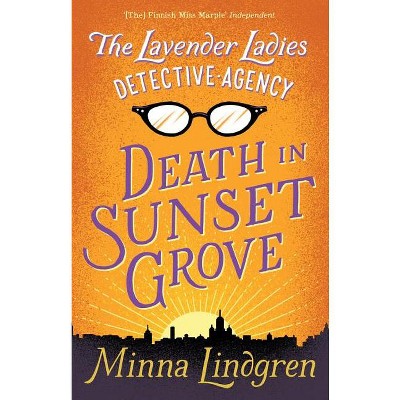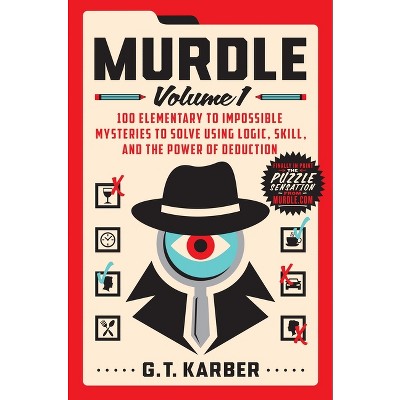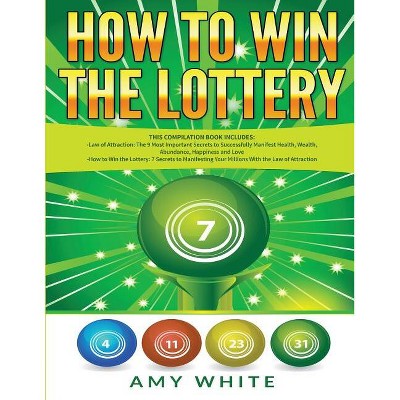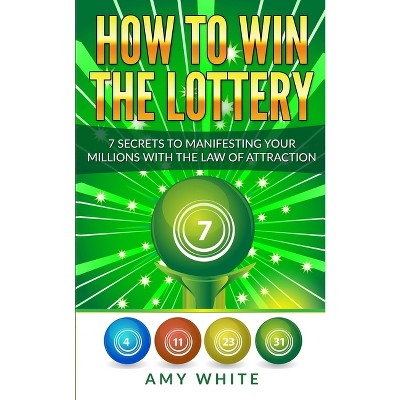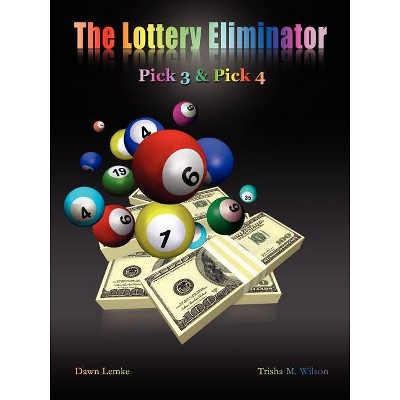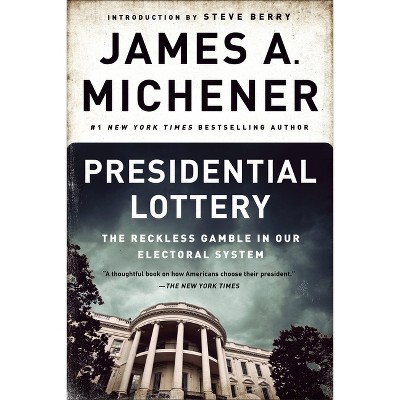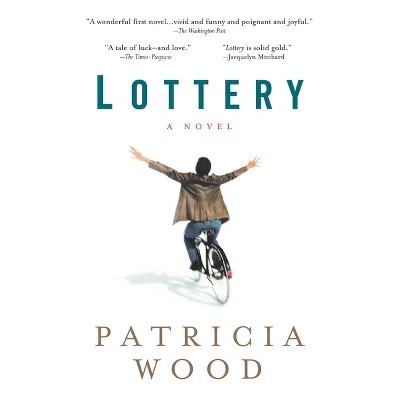Sponsored

Casanova's Lottery - by Stephen M Stigler (Hardcover)
In Stock
Sponsored
About this item
Highlights
- The fascinating story of an important lottery that flourished in France from 1757 to 1836 and its role in transforming our understanding of the nature of risk.
- About the Author: Stephen M. Stigler is the Ernest DeWitt Burton Distinguished Service Professor in the Department of Statistics and the College at the University of Chicago.
- 232 Pages
- Games, Gambling
Description
About the Book
"In 1994, historian Stephen Stigler placed a mail-order purchase for a rare bit of ephemera from a French bookstore: a lottery Almanac from 1834. It contained the winning numbers for the entire span of the French Loterie from 1758 onward, including details on prizes actually awarded-difficult data to come by-as well as hand-written notes by an early owner. Stigler was fascinated with what he saw about how the Loterie was carried out, who bought tickets, and what size bets they placed, and so in the decades that followed he amassed booklets, legal documents, advertising bills, notices, contracts, and tickets. His own collection and extensive additional research helped him piece together the Loterie's remarkable inner workings, as well as its implications for how we understand the history of risk more broadly. In the 1750s at the urging of famed philandering adventurer Giocomo Casanova (who had recently escaped from a Venetian prison by means of a sharpened iron, an accomplice, a rope of bed sheets, and a stolen gondola), the French state began to embrace risk in its approach to the Loterie. The prize amounts varied depending on the number of tickets bought, and the amount of the bet was determined by each individual bettor. The state could lose money on any individual lot but was statistically guaranteed it would come out on top in the long run. Stigler follows the Loterie from its curious inception to a 1776 expansion, to its interruption during the French Revolution (but only with the Terror of 1793), to its renewal in 1797 and further expansion, and finally to its suppression in 1836, examining throughout the wider question of how members of the public came to trust in new financial technologies and believe in their value"--Book Synopsis
The fascinating story of an important lottery that flourished in France from 1757 to 1836 and its role in transforming our understanding of the nature of risk. In the 1750s, at the urging of famed adventurer Giacomo Casanova, the French state began to embrace risk in adopting a new Loterie. The prize amounts paid varied, depending on the number of tickets bought and the amount of the bet, as determined by each individual bettor. The state could lose money on any individual Loterie drawing while being statistically guaranteed to come out on top in the long run. In adopting this framework, the French state took on risk in a way no other has, before or after. At each drawing the state was at risk of losing a large amount; what is more, that risk was precisely calculable, generally well understood, and yet taken on by the state with little more than a mathematical theory to protect it. Stephen M. Stigler follows the Loterie from its curious inception through its hiatus during the French Revolution, its renewal and expansion in 1797, and finally to its suppression in 1836, examining throughout the wider question of how members of the public came to trust in new financial technologies and believe in their value. Drawing from an extensive collection of rare ephemera, Stigler pieces together the Loterie's remarkable inner workings, as well as its implications for the nature of risk and the role of lotteries in social life over the period 1700-1950. Both a fun read and fodder for many fields, Casanova's Lottery shines new light on the conscious introduction of risk into the management of a nation-state and the rationality of playing unfair games.Review Quotes
"Casanova's Lottery captivates with the variety of its contents and the questions it puts forth to historians. Stigler offers a fascinating history of the Loterie royale 'from the ground up, ' enhanced with rare and original archival material, part of which had been patiently collected by the author himself over several decades. While the book is written in clear language, making it perfectly intelligible for readers who lack mathematical knowledge . . . the author's proficiency in probability theory and its history proves to be an invaluable asset for an in-depth study, allowing readers to grasp the concrete money issues that shaped the practices of the bettors and the organizers."-- "Journal of Modern History"
"The author's statistical skills enrich the book with mathematical annotations about the gambler's fallacy, marginal utility, Laplace's theorem, theory of risk and other 'technical' arguments. This work is an entertaining history and a mathematical study that once again highlights the close links between the emergence of probability calculus and games of chance."
-- "Choice""This excellent book blends compelling mathematical content with fascinating historical context as it describes the remarkable story of the French lottery (Loterie) established in 1757. . . . Stigler relies on a rich array of primary source materials, including rediscovered original lottery documents, for evidence of sound mathematical calculations that supported the French state's willingness to risk significant loss during each individual draw due to the assurance of longer-term gains."-- "British Society for the History of Mathematics Neumann Prize Committee"
"Stigler's statistical expertise enables him to undertake an analysis beyond the skill of many (maybe most) historians. . . . Casanova's Lottery will be of interest to historians of gambling, finance, and probability, not least for the clearly explained statistical analyses. Moreover, Stigler's lucid and elegant prose makes the book an engaging read for a wide audience."-- "European History Quarterly"
"The book [stands] witness to the remarkable skills of the author, who searched for related material for more than thirty years, from Parisian specialized booksellers to French, English, and American archives. He manages to bring a wealth of connections and characters into the story, such as Voltaire's scheme to take advantage of an earlier French state lottery aimed at reimbursing state debtors." -- "CHANCE"
"In 1758, the French state launched an unusual lottery suggested by famed Italian gambler Giacomo Casanova. It lasted until 1836, with a three-year gap during the French Revolution, providing 4% of national income at its peak. However, every time it was drawn, the state was at risk of losing a large amount, with 'little more than a mathematical theory to protect it, ' writes statistician Stigler as he tells the lottery's story for the first time." -- "Nature"
"I recommend Stigler's new book Casanova's Lottery to anyone interested in the history, economics, ethics, and politics of modern-day lotteries. Among other things, Stigler not only traces the history of the French Loterie, the first large-scale commercial lottery in history, he also examines the mathematics of risk, including the epic back-and-forth debate over the 'maturity of chances, ' or so-called gambler's fallacy, and the politics of legalized gambling generally." -- "Prior Probability"
"Stigler draws on a particularly fascinating historical case study, about which he has incredibly deep knowledge and which he is able to transmit in meticulous detail and in delightfully lucid prose. The writing is absolutely clear and readable--a wonderful example of the possibility of writing about serious scholarly matters in a way that invites the reader along and allows the reader to share in the author's expertise, rather than either excluding the non-expert reader or talking down. It's remarkable how accessible Stigler makes the technical material on probability and statistics, again without any simplifications that would take away from the seriousness of the treatment. This is truly an unusually well-written book."--Justin E. H. Smith, author of The Internet Is Not What You Think It Is
"Stigler is unrivaled in his ability to elaborate subtle points of probability and statistics for broad audiences and to integrate discussion of these technical concepts with lively narrative and historical analysis. He masterfully integrates the practicalities of betting strategy and lottery administration with higher-level intellectual debates about risk, probability, and the ethics of gambling. Entertaining and highly informative."--William Deringer, author of Calculated Values: Finance, Politics, and the Quantitative Age
About the Author
Stephen M. Stigler is the Ernest DeWitt Burton Distinguished Service Professor in the Department of Statistics and the College at the University of Chicago. He is the author of several books, including The History of Statistics and The Seven Pillars of Statistical Wisdom.Shipping details
Return details
Frequently bought together

Trending Humor & Games Books






